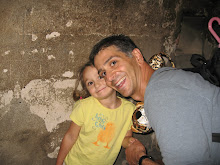Probably the most important aspect to the sciences is quantification, that is, the ability to transform data into (and out of) numbers. What many scientists may not realize is the idea of quantification comes from the ancient philosopher Pythagoras. Pythagoras believed that numbers revealed the true nature of the cosmos. Given the prevalence of science in our culture, the notion of quantification is pervasive. We have become a Pythagorean society because virtually everything, it seems, can be turned into a number. A person does not need to employ good writing or clear reasoning, merely the cold, hard statistics to get something done. There is one simple problem with this perspective, however: Pythagoras lied.
Of course there are many areas that cannot really be quantified. One of them is the importance of the humanities. Oh sure, we could take a poll and ask people to rate the humanities, but that would only gauge public opinion, not true importance. We could assess earnings from the publishing companies, but that would rate sales. We could look at enrollment data from universities, but that would evaluate the interest of students. So how can we understand the true importance of the humanities?
One example of the importance of the humanities comes from Primo Levi. His famous memoir of the Nazi Holocaust, Se questo è un uomo (“If this is a man”) was translated with the unfortunate English title Survival at Auschwitz. It is unfortunate because, as the original Italian suggests, he describes the horrors of “The Final Solution” as a process of dehumanization.
One episode is key to Levi’s memoir. Since he’d had training as a chemist, he worked in Auschwitz as a pharmacist (yes, Auschwitz had a pharmacy). At one point a French prisoner nicknamed Pikolo noticed he was Italian, and asked him about an episode from Dante’s Inferno. In a striking passage, Dante meets Ulysses in hell. Ulysses tells of his final voyage, during which he inspires his men with his oratorical skills. He tells his men that they have a duty to explore the world, reminding them that they were not born to live as animals. The parallels with Levi’s situation are striking: he too was in a type of hell, reduced to the level of beasts.
Ulysses’ speech is so famous that Italian school children learn to recite it from memory. But at that moment in the Death Camp, Levi could not remember it. And his failure to recall Dante’s verses caused him great anxiety. He spends the next couple of hours piecing together the portions he could remember. Imagine: Levi was in Auschwitz, with all its horrors and brutalities—a true hell on Earth if ever there was one—but for a short while he got caught up in the inability to recite Dante.
He was in Auschwitz, for crying out loud—why would he care about poetry? Simple: to remember Dante momentarily negated the Nazis’ dehumanization of him. Animals don’t have poetry or the arts, but people do. It was a means to reassert his almost-lost humanity. His inability to recite it at that moment elicited the doubt that perhaps the Nazis were right about him. Instead of taking place on a battlefield, his struggle took place in his memory, indeed within his very soul. To us now it seems strangely trivial, but to recite Dante in that context would be an act of rebellion.
Here, pay attention Pikolo. Open your ears and your mind, I need for you to understand:
“Consider your birth:
you were not born to live as brutes,
but to follow virtue and learning”
It was as if I’d heard it for the first time: like a trumpet blast, like the voice of God. For a moment I forgot who I am and where I am.
Here then is the failure of Pythagorean thought. How could someone quantify Dante in that moment for Primo Levi? At that instant, the great poet was a potent reminder that Levi was not a sub-human entity worthy only of death. Dante’s poetry was beyond any numerical value. And it still is. It always is. Levi’s adherence to Dante is dramatic given his inhumane circumstances, but throughout the world there are millions of similar stories like his when poetry makes a difference to someone.
Numbers can tell a lot about human conditions, but they say nothing about the human condition. On the contrary, they have a strange de-humanizing effect on the persons involved. Perhaps the most telling indictment of Pythagoras was uttered by another twentieth-century monster, Joseph Stalin, who proclaimed: “The death of one man is a tragedy, but the death of millions is a statistic.”
Monday, September 14, 2009
Subscribe to:
Post Comments (Atom)




I just came across this editorial written several months ago. It dovetails nicely with "Pythagoras Lied." In it, a Russian Historian notes the importance of the humanities during the Nazi siege of Leningrad (1941-44). It's worth a read:
ReplyDeletehttp://hnn.us/articles/68889.html